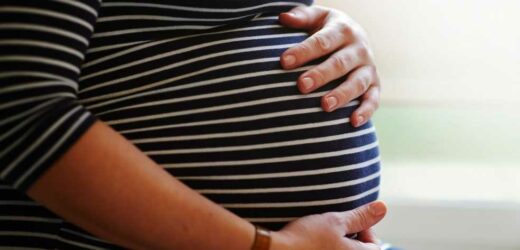NEW mums who don't qualify for standard maternity pay could still get a payment adding up to thousands of pounds.
Women who are self-employed could also be eligible for the cash when they have a baby.
Mothers taking maternity leave are generally entitled to Statutory Maternity Pay (SMP) from their employer.
But in some circumstances they may not be eligible, for instance if they lost or left their job recently.
And women working from themselves don't have an employer to pay them SMP.
Instead they may be eligible for the Maternity Allowance which is paid by the government and is worth up to £151.97 a week.
That adds up to £5,926 over the 39 weeks you could get it, though the exact amount you can get depends on your eligibility.
Anyone getting Maternity Allowance also get Class 1 national insurance credits – which can help you build up your state pension – so it's worth claiming even if you don't get the full amount.
How much is Maternity Allowance?
Maternity Allowance is worth different amounts, spending on your situation.
- 90% of your average weekly earnings (before tax) up to a maximum of £151.97 a week for 39 weeks
- £27 a week for 39 weeks, or
- £27 a week for 14 weeks.
Who is eligible for Maternity Allowance?
You could be eligible for Maternity Allowance if you're not entitled to maternity pay, you're self employed or if you've recently stopped working.
The following must apply within the previous 66 weeks of your due date too:
- You must have been either employed or self-employed for at least 26 weeks
- You must have been earning (or classed as earning) £30 a week or more in at least 13 weeks – the weeks do not have to be together
You may also be eligible if you were on furlough and earned less than £30 in some weeks but normally earn more.
If you're self-employed you must have paid Class 2 National Insurance for at least 13 of the 66 weeks to get the full amount of £151.97 a week.
If this isn't the case, you will still get £27 a week for 39 weeks.
If none of the above apply, you may still be able to get Maternity Allowance of £27 paid for 14 weeks.
You could get this if within the previous 66 weeks of your due date, and for at least 26 weeks, you're:
- Married or in a civil partnership
- Not employed or self-employed
- Take part in the self-employed work of a partner or civil spouse
- Doing work for the business which is unpaid
- Married or civil partnered to someone who is registered self-employed with HMRC and should pay Class 2 National Insurance
- Not eligible for Statutory Maternity Pay or the higher amount of Maternity Allowance
You can check your eligibility for Maternity Allowance or Statutory Maternity Pay using the calculator on gov.uk.
If you can't claim maternity benefits you might be able to get Universal Credit.
How do I claim Maternity Allowance?
You can claim this benefit as soon as you're past 26 weeks pregnant.
Payments start 11 weeks before your baby is due and is paid every two or four weeks.
You should be aware that the money you get from Maternity Allowance can affect other benefits you get, including:
- Universal Credit
- Council Tax Reduction
- Housing Benefit
- Employment and Support Allowance (ESA)
- Income Support
- Jobseeker’s Allowance (JSA) – this will stop if you get Maternity Allowance
- bereavement benefits
- Carer’s Allowance.
It could also affect the amount you get because of the benefit cap.
If you're eligible, to get the the money you need to fill in the Maternity Allowance (MA1) claim form.
You can do this online, or by printing it out and sending it by post – the address is on the form.
If you're applying for Maternity Allowance and paying your National Insurance bill in instalments because of Covid, you'll need to contact HMRC before otherwise you could be rejected.
You can contact HMRC online or by phone on 0300 200 3310, or by post at: Self Assessment, HM Revenue and Customs, BX9 1A.
You'll need to provide the following information:
- Proof of income
- Proof of the baby's due date
- Your SMP1 form if you were denied SMP by your employer
You should here about your claim within 20 working days of applying.
If you are not successful but believe you're entitled, you can challenge the decision.
Other help for soon-to-be mums
You could also be eligible for the Sure Start Maternity Grant, which offers soon-to-be-parents in England, Wales and Northern Ireland a one-off upfront sum of £500.
You can get prescriptions and dental treatment for free while you're pregnant and for 12 months after your baby's due date.
Ask your doctor or midwife for a maternity exemption certificate (MATEX) to claim the free care.
Under the Healthy Start programme, you may be entitled to free milk, infant formula or fruit and veg if you're at least 10 weeks pregnant or you have a child under four and you're on certain benefits, such as Universal Credit.
And here are 16 freebies for parents and new mums including nappies, baby wipes and Lego magazines.
Source: Read Full Article



